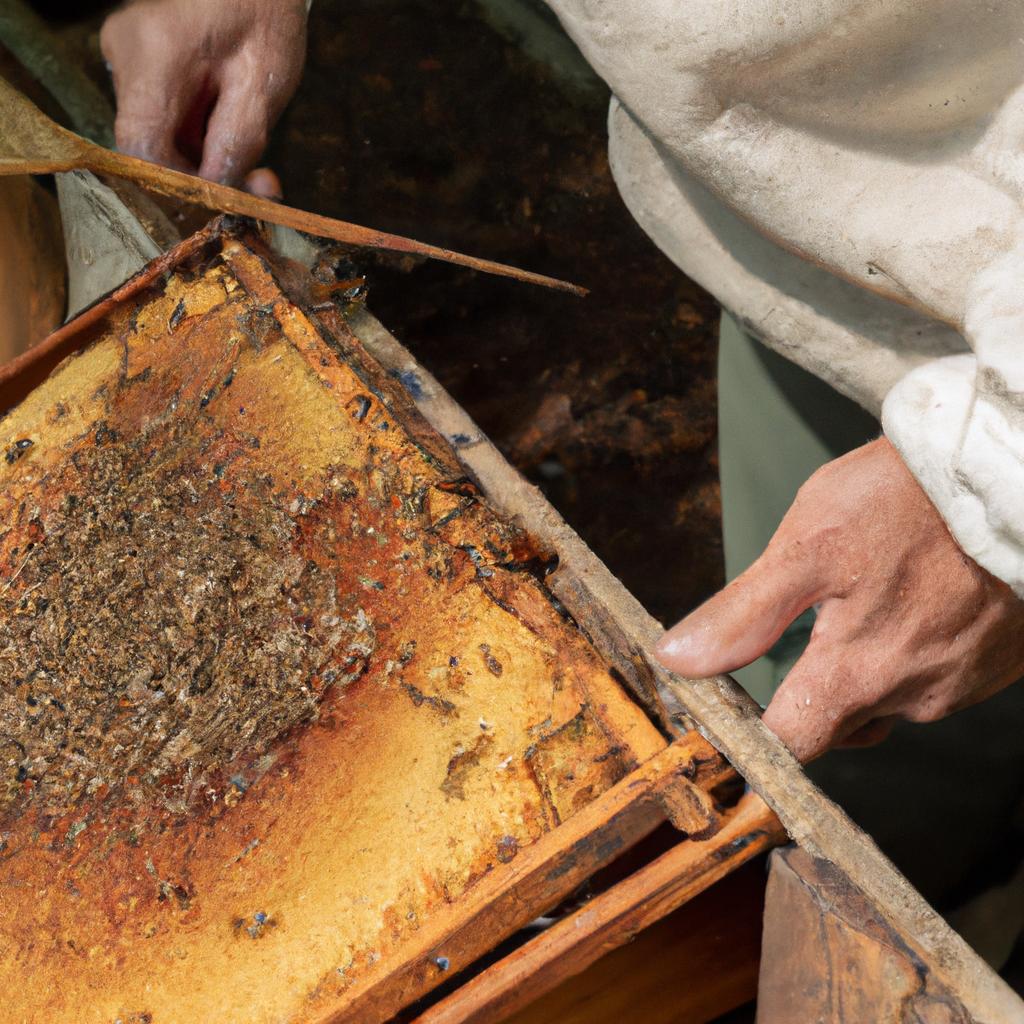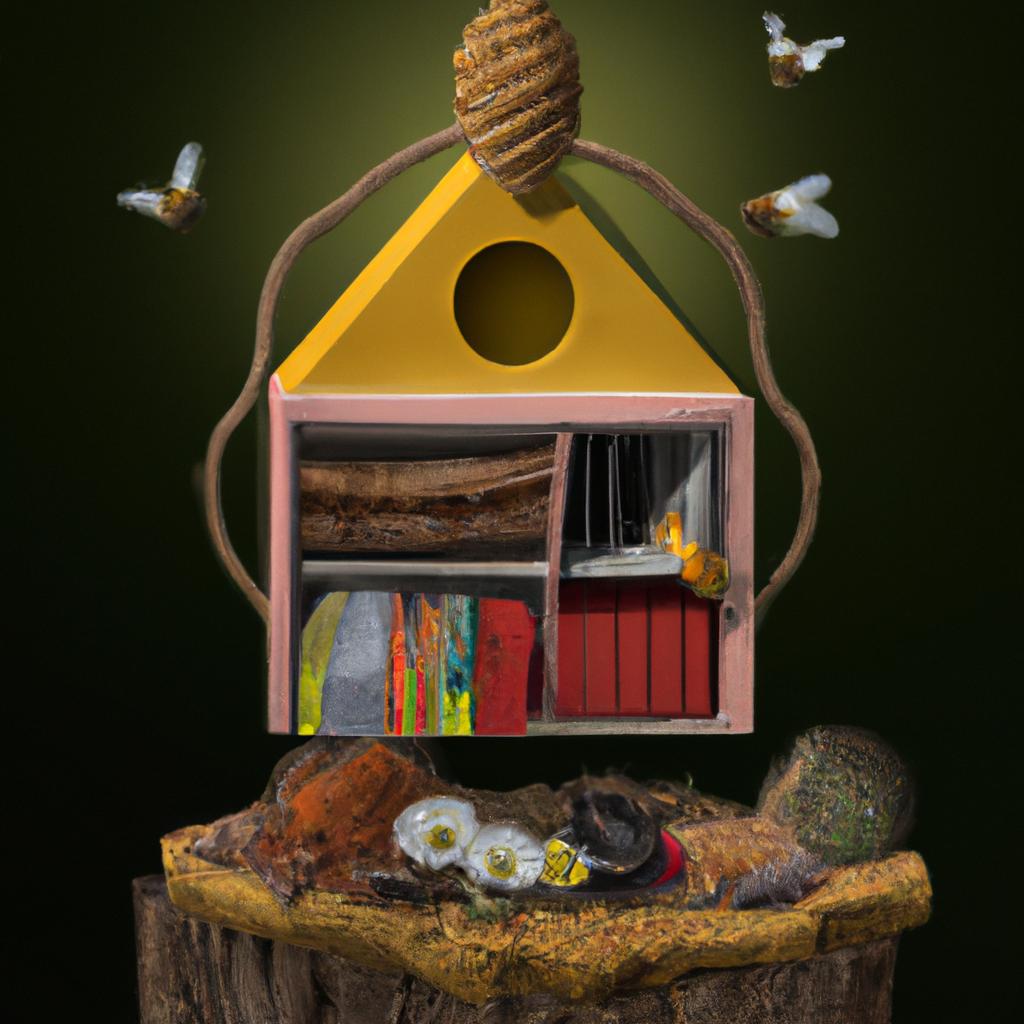Are ants invading your beehive and causing problems for your honeybees? Ants are a common problem for beekeepers, and if not dealt with quickly, they can cause significant damage to your hive and even harm your bees. Ants are attracted to beehives because of the sweet honey and the beeswax, which they use to feed their colonies. This article will provide you with effective methods to get ants out of your beehive and prevent them from returning.
Understand the Ants

Before you can eliminate ants from your beehive, it is essential to understand the types of ants that typically invade beehives. The most common ants found in beehives are Argentine ants and Carpenter ants. Argentine ants are small, brown ants that form large colonies, while Carpenter ants are larger, black ants that nest in wood. These ants can quickly invade your beehive and cause damage to your bees and their honeycombs.
Ants get into beehives by climbing up the legs of the hive stand or by crawling up the hive’s exterior. They are attracted to the scent of honey and beeswax, which they use to feed their colonies. Once they find a food source, they leave a chemical trail for other ants to follow, leading to a full-scale invasion.
To effectively eliminate ants from your beehive, you need to understand their behavior and how they find their way into the hive. By doing so, you can take appropriate preventive measures to keep them out.
Preventive Measures

Prevention is the best way to keep ants out of your beehive and avoid the need for expensive treatments. Here are some preventive measures you can take:
Keeping the Hive Clean and Dry
Keeping your beehive clean and dry is essential to prevent ants from invading. Ants are attracted to moisture and food sources, so removing any spilled honey or sugar syrup from your hive can help deter ant activity. Regularly cleaning your hive will also help reduce the likelihood of an ant infestation.
Using Ant-Proof Hive Stands
Using an ant-proof hive stand is an effective way to keep ants out of your beehive. An ant-proof stand is a platform with legs coated in a sticky substance that prevents ants from climbing up. You can also use petroleum jelly or Tanglefoot to create a barrier that ants cannot cross. Ant-proof hive stands are available in beekeeping supply stores or can be easily made at home.
Stay tune for the next two sections.
Preventive Measures
Placing Ant Baits Around the Hive
Ant baits are an effective way to control ants around your beehive. Ant baits work by luring ants to a poisoned food source, which they carry back to their nest, effectively eliminating the colony. You can use commercially available ant baits or make your own by mixing boric acid with sugar water. Place the ant baits around the perimeter of the hive, away from the bees’ entrance, to prevent any accidental contact.
Natural Ant Deterrents
If you’re looking for a natural way to repel ants from your beehive, there are several spices, herbs, and plants that can help. Here are some natural ant deterrents:
Spices and Herbs that Repel Ants
Spices and herbs such as cinnamon, garlic, and peppermint are natural ant repellents. Sprinkling cinnamon or garlic powder around the hive or planting peppermint or spearmint near the hive can help keep ants away. You can also create a spray by steeping these spices and herbs in water and spraying it around the hive.
Essential Oils that Deter Ants
Essential oils such as peppermint, lemon, and tea tree oil are effective ant deterrents. You can mix a few drops of these oils with water and spray it around the hive to keep ants away. You can also soak cotton balls in the oils and place them around the hive.
Plants that Ants Dislike
Certain plants such as marigolds, mint, and lavender are known to repel ants. Planting these around the hive can help keep ants away. Additionally, planting plants that attract ants, such as fruit trees, away from the hive can help keep ants from coming near it.
By using natural ant deterrents and preventive measures, you can keep ants out of your beehive and prevent damage to your bees and their honeycombs. However, if you still experience an ant infestation, you may need to use chemical ant control methods, which will be discussed in the next section.
Chemical Ant Control
If preventive measures do not work or ants have already invaded your hive, chemical ant control may be necessary. However, it is essential to use insecticides that are safe for bees to prevent harming your bees.
Insecticides that contain pyrethrin or permethrin are safe to use around bees if applied correctly. These insecticides are available in sprays, powders, and traps. When using insecticides, it’s crucial to follow the instructions on the label carefully. Always wear protective gear, including gloves and a mask, and apply the insecticide away from your hive’s entrances.
It is also essential to take precautions when using chemicals around your beehive. Avoid spraying the insecticide directly on your bees or their honeycombs. Instead, apply the insecticide to areas where ants are entering your hive or on the ground around the hive stand.
Conclusion
In conclusion, ants can be a significant problem for beekeepers, and it’s essential to eliminate them from your hive as soon as possible. By understanding the behavior of ants and taking preventive measures, you can keep ants out of your hive and avoid the need for expensive treatments.
Regularly cleaning your hive, using ant-proof hive stands, and natural ant deterrents can help deter ants from invading. If preventive measures fail, using insecticides that are safe for bees can be an effective way to control the ant population.
Remember, ants can cause significant damage to your bees and their honeycombs, so it’s important to take action to prevent an infestation. By following the methods discussed in this article, you can protect your hive from ants and ensure the health and safety of your bees.
Beekeepinglove.com hopes that this article has been helpful in guiding you on how to get ants out of your beehive and keep them out.
